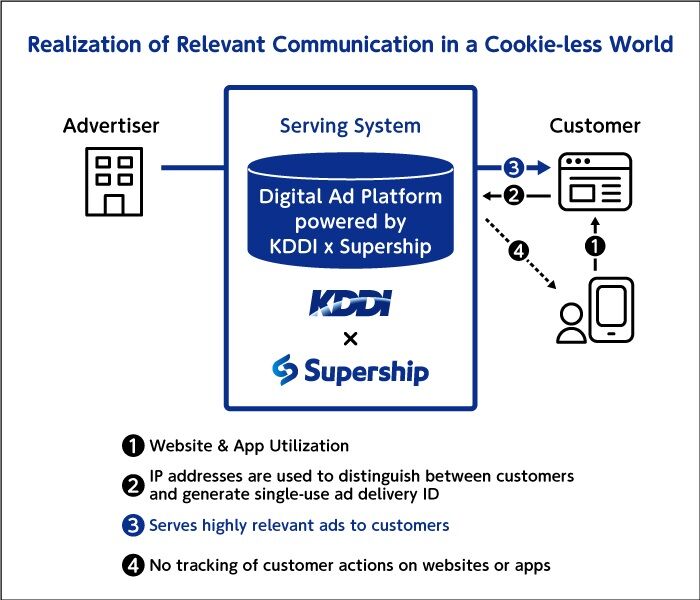
This Advertising Platform Doesn't Use Third-Party Tracking
Rahul Kalvapalle — November 24, 2021 — Tech
References: kddi & finance.yahoo
Japanese-based companies KDDI and Supership have joined forces to create a new digital ad platform that is designed to offer refined and relevant advertisements to customers whilst also placing high importance on the privacy of their data.
Currently, most digital ad platforms and marketing services make use of third-party data that's garnered by tracking consumers behaviour with tools such as cookies.
The new digital ad platform devised by KDDI and Supership, which is set to be launched in January 2022, gets around this problem by crafting single-use digital tokens for individual website and app activities in conjunction with permission-based variables such as age group and gender. This makes it possible to convey effective marketing and advertising to consumers without compromising on their privacy.
Image Credit: KDDI / Supership
Currently, most digital ad platforms and marketing services make use of third-party data that's garnered by tracking consumers behaviour with tools such as cookies.
The new digital ad platform devised by KDDI and Supership, which is set to be launched in January 2022, gets around this problem by crafting single-use digital tokens for individual website and app activities in conjunction with permission-based variables such as age group and gender. This makes it possible to convey effective marketing and advertising to consumers without compromising on their privacy.
Image Credit: KDDI / Supership
Trend Themes
1. Privacy-protecting Ad Platforms - The creation of digital ad platforms that prioritize data privacy by utilizing single-use tokens could disrupt the traditional ad industry.
2. Permission-based Advertising - The use of permission-based variables like age group and gender in advertising could disrupt the standard data-gathering methods that currently exist.
3. Cookie-free Marketing Services - The move away from third-party tracking tools like cookies in digital marketing services could be a disruptive innovation opportunity for companies.
Industry Implications
1. Digital Advertising - The digital advertising industry could benefit from utilizing privacy-focused ad platforms to regain consumer trust in advertising practices.
2. Marketing - Marketers could disrupt traditional data-gathering methods and provide more targeted and relevant ads to consumers using permission-based variables.
3. Consumer Data Protection - Industries focused on consumer data protection could benefit from the development of privacy-protecting digital ad platforms that prioritize consumer privacy.
0.9
Score
Popularity
Activity
Freshness























